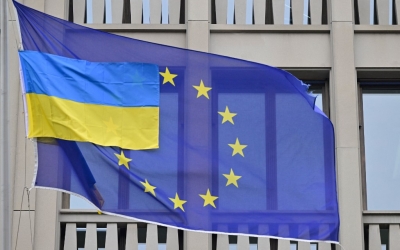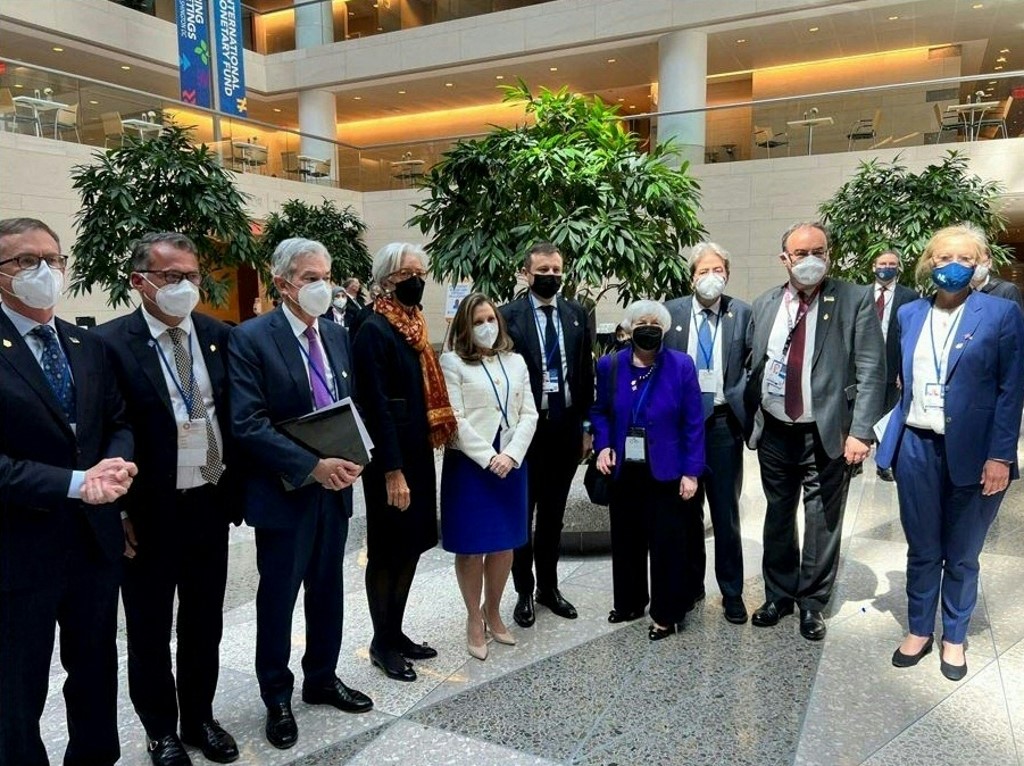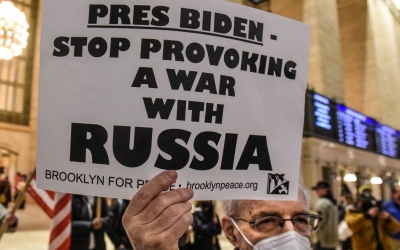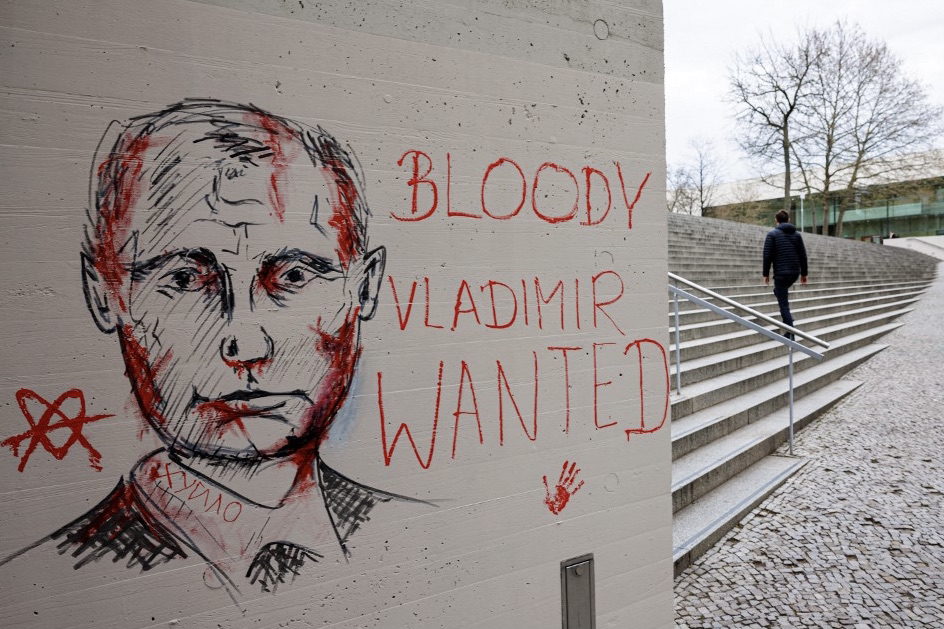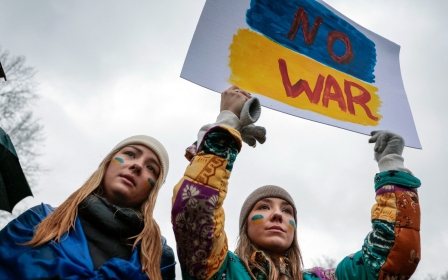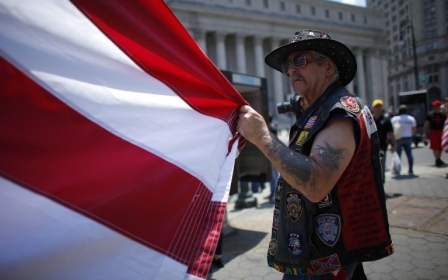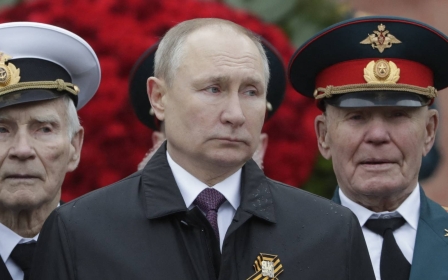Russia-Ukraine war: In the West's response, emotion has overcome reason
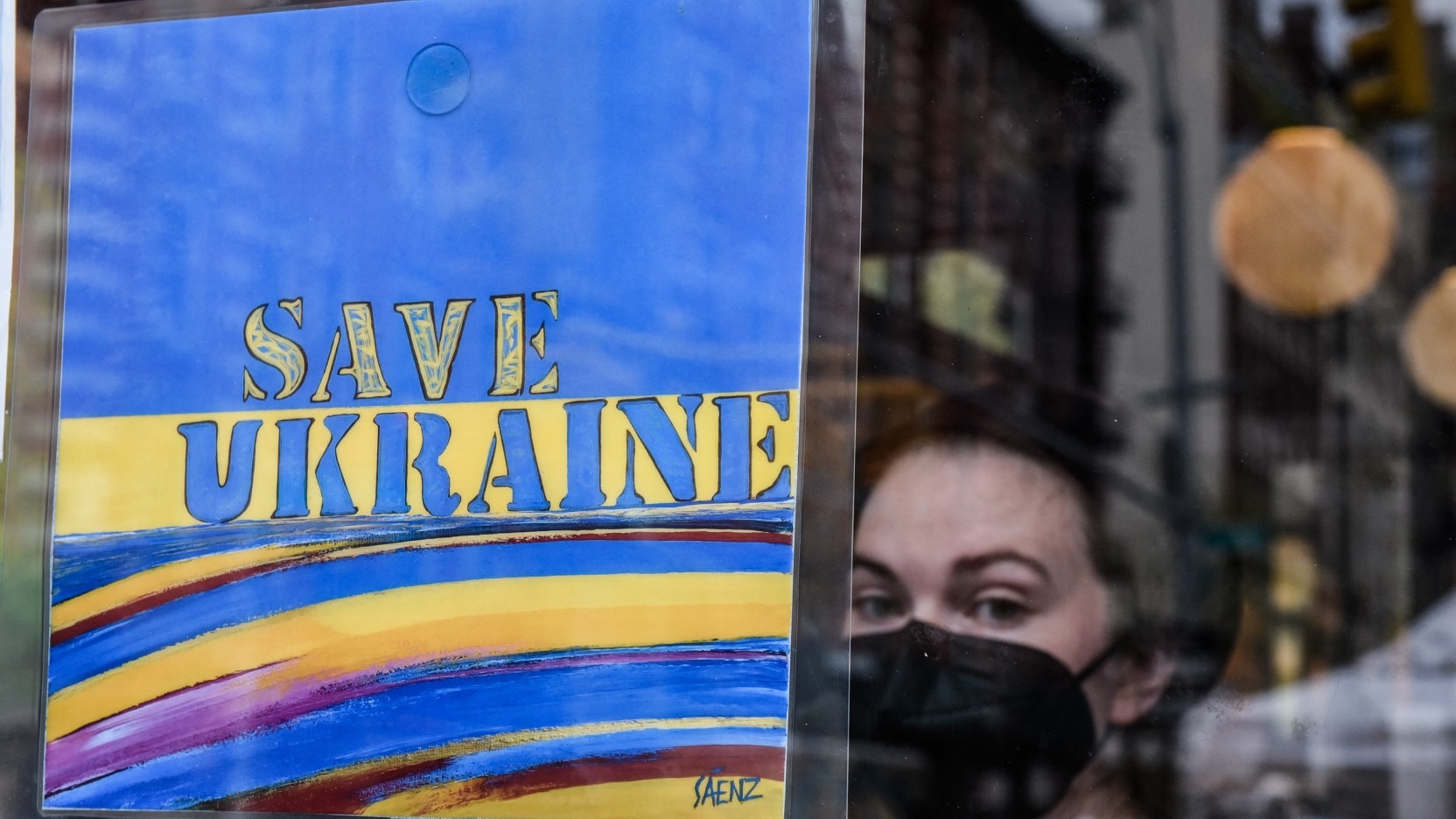
The war in Ukraine can only escalate. Russian President Vladimir Putin is determined to bring home territorial gains and the West is determined to stop him. Washington has abandoned any hesitation in sending battlefield weapons to Ukraine.
A global boycott of Russia is by no means complete and the world order is changing accordingly
Tanks, heavy artillery and fighter jets are all flooding into Ukraine. Russia is investigating acts of “sabotage” by Britain’s SAS troops on Ukrainian soil, meaning that British troops could very well be operating in the conflict.
The dividing line between a proxy war and direct involvement between Russia and Nato is now paper-thin. With statements on both sides willing the war on, diplomacy has no room for the foreseeable future.
A former Nato supreme allied commander Europe, Philip Breedlove, has even suggested that Nato should send troops to Ukraine and should not be paralysed by the fact that Putin might use nuclear weapons.
The sanctions imposed on Russia, together with Moscow’s countermeasures, are exposing the world economy and the global financial system to tremendous stress and a potential blowback: it is creating the perfect storm of a scarcity of energy and staple foods, inflation and commodity shocks.
A global boycott of Russia is by no means complete and the world order is changing accordingly.
Dangerous zero-sum game
Nato, the EU and G7 members are fully engaged in making Russia an international pariah. The rest of the Brics (Brazil, India, China and South Africa) nations plus the so-called global South maintain a distinct distance, particular to the West’s narrative about the war.
Yes, the vast majority of the UN General Assembly condemned Putin’s invasion and Russia has also been suspended from the Human Rights Council. But only Nato, EU and G7 members have adopted sanctions. And no one else at the G20 meeting of finance ministers followed the US, Canadian, British and Australian teams out of the door. The EU Commission itself only left the room during the Moscow representative's speech.
Indonesia, which holds the presidency of the G20, and China stopped the proposal to have Russia expelled from the group.
With such high risks and deep divisions, you would think that the choices now being faced by the major players of the global community should be thoroughly and critically debated. But such a discussion is struggling to take off, especially in Europe.
It has all become a dangerous zero-sum game: where Russia appears in its own words to be confronted with a binary choice - win this war or be destroyed, while the West is prepared to settle for nothing less than regime change in Moscow.
Putting to one side the views and aims of the Russian elite about the conflict (and it is difficult to come to terms with them), the western political and media debate provides an object lesson in how not to behave in such a crisis. Narrative and representation have supplanted reality. Emotion has overcome reason. Wisdom has flown out the window.
Western narrative
All this happened within a few hours of the invasion. Yes, there patently was an aggressor and it was equally clear who was being attacked. But the western narrative went much further in the meaning it gave to events.
It was a clash not just between two sovereign states, but between two value systems: autocracy and democracy. Admittedly, Putin himself played a part in this by frequently talking in interviews with western journalists about the demise of western liberalism.
But western ideologues, shaken by the degree to which the liberal establishment was being challenged domestically, did not need much encouragement. This, they claimed, was a conflict on which no less than the future of the century depended.
The community of democracies must be united without any distinction to crush the threat through sanctions and weapons delivery. The minimum threshold for success in this epic confrontation would be regime change in Russia, even with the denials put out by US officials that this is the real goal. As a Rand study recently put it: "If regime change came to Moscow, the West might reduce security risks by engaging new leaders to foster more-open and legitimate governance, such as through free and fair elections and anti-corruption measures."
Any deviation from this script or doubt about its costs and implications are not to be tolerated. Neither was there, in the West, any serious examination of the root causes of the conflict, other than some genetic Russian desire to dominate.
No tolerance for dissent
When Russian separatists in the Donbas launched a missile at a railway station where refugees were being evacuated, the words “for the children” were written in Russian on the missile. No one asked the question of whose children were being avenged. The answer was the ones that had been killed by Ukrainian bombardment in the Donbas.
The daily deluge of gruesome images of discarded corpses and hastily built mass graves only seemed to confirm the belief that the West was dealing with absolute evil (which, incidentally, is exactly how Putin sees the conflict).
Any attempt to produce reasoned political analysis by the West is regarded as treasonous. Authoritative and highly respected international relations scholars, such as John Mearsheimer, have been mercilessly smeared for simply raising well-argued doubts about past actions and omissions by all the main players of the crisis.
No efforts were made to try and understand if Russia's security concerns and previous political claims had any justification and should have been better managed
Europe and America, which regard themselves as the cradles of critical thinking and of freedom of speech, have become dangerously intolerant to dissenting views; rivers of anger flow in the direction of anyone who dares express in good faith any doubt about the risks that certain choices may imply for the world's peace and economy.
It all amounts to a depressing replay of George W Bush’s famous slogan after 9/11: "Either you are with us or you are with the terrorists."
Any sound debate has been shut down so ferociously to give rise to the disquieting suspicion that the core problem here may be psychological, and that it could be once again rooted in the West's very old obsessive need for an enemy.
No efforts were made to develop any kind of “cognitive empathy”, i.e. to try and understand if Russia's security concerns and previous political claims had any justification and should have been better managed. The mere fact that Russia is an autocracy has instead automatically disqualified these claims regardless of their merit.
Western illiberalism
This violent polarisation has had an immediate effect on Europe. The tidal wave of anger has obliterated the old continent’s tradition of seeing nuances in foreign policy.
The Anglosphere has set the agenda, which apparently has nothing to do with a clash of empires or nationalisms. Competing national identities were, apparently, not developed around highly fluid boundaries and security perceptions in the borderlands of Ukraine and Russia.
There is only one way to see the Euromaidan uprising in Ukraine that began in 2013 and that is as a democratic revolution; not as Russia sees it - as a coup. Those who rejected this revolution are to be forever regarded as "separatists", not as Ukrainians who did not share this vision.
Political semantics seem to have been deliberately used to leave no room for compromise, understanding or easing of tensions.
That such a narrative could prevail is a testament to the increasing illiberalism in western political culture. Intolerance has grown not only from challenges from without but challenges from within. The virulent debates about civil rights campaigns polarised western democracies from both the extreme right and left of the political spectrum.
Just examine the lexicon of the western narrative about civil rights campaigns and Russia - where words like retrograde, obscurantist, troglodyte, Nazis and fascist are far too easily used to portray viewpoints different from the mainstream.
How is it possible that western thinking has become so narrow?
Every topic is viewed through a prism of black or white; any nuance has been erased. Either you support Ukrainians’ heroic struggle against ruthless Russians no matter the costs and the consequences, or you are a Putin stooge. Any questioning of Ukraine’s real democratic credentials is considered political blasphemy.
New security architecture
In Germany and Italy, such debates have become truly toxic. All their foreign policy choices towards Russia in the last two decades have been completely and emotionally reassessed exclusively through Eastern European and American eyes. Decoupling from Russia and changing its regime is now an official policy.
Berlin’s political establishment is in a state of shock. A quarter of a century of Ostpolitik is under attack. Frank-Walter Steinmeier, former German foreign minister and current president, is reciting a mea culpa that was not enough to smooth his visit to Kyiv. Former chancellors Gerhard Schroeder and Angela Merkel are criticised, respectively, for being on Putin’s payroll or having been duped by his imperialist and revanchist designs over Eastern Europe.
To be clear, these German leaders should not apologise for having engaged Russia in the last decades, nor for having secured a reliable and cheap energy supply from Moscow. They have been protecting their country’s national interest.
Their mistake was that they did not use these ties to build a new security architecture, which had to secure two key interests - the sovereignty and security of Eastern Europe and Russia’s security concerns.
German leaders let the EU’s agenda be hijacked by Eastern European countries’ repulsion towards Russia
They opted for a delay; they let the EU’s agenda be hijacked by Eastern European countries’ repulsion towards Russia, and they accepted what amounted to a US veto on dealing with Russia. After all, the US foreign policy establishment has been obsessed for the last six years with Russiagate, the alleged attempt by Putin to interfere in US elections.
In Rome, the debate has focused on former Prime Minister Silvio Berlusconi’s long-standing friendship with Putin and the reliability of gas supplies with Russia. Italy, as usual, has simply imported its political talking points from abroad, and it is now applying them with the zeal of one who feels uncomfortable for not having done the right thing.
The net result now is a 180-degree change in foreign policy. The two countries’ respective governments and parliaments seem ready to assume decisions whose ultimate outcome could be painfully damaging to their economies and their competitiveness: and this following two terrible years due to the Covid-19 pandemic.
Sleepwalking to disaster
By this autumn, social tensions in Europe could become unsustainable. Both in Brussels and other European capitals, leaders are sleepwalking to disaster; a very limited number of politicians are questioning the policies adopted in the last two months.
If western values, built upon democracy, freedom, rule of law and respect for human rights are so robust and far better than any other ones (something I strongly believe to be true), why are we so nervous about defending them?
Why is the slightest modicum of dissent about the war so easily seen as subversive? Why is the war presented as an apocalyptic clash between rival systems of political belief? Why in the early 21st century is Manichaeism still alive and kicking in the politically correct West?
What justifies such an adamant refusal to grasp and accept that the Ukraine conflict is far more complex than the assertion that “Putin is mad and bad”. Why is recalling what actually happened in Ukraine and attempting to learn from the past so unacceptable?
Democracies are renowned for asking questions and raising legitimate doubts. Autocracies have a long tradition of crushing debate. At the moment, both sides in this conflict are employing similar techniques.
The views expressed in this article belong to the author and do not necessarily reflect the editorial policy of Middle East Eye.
This article is available in French on Middle East Eye French edition.
Middle East Eye propose une couverture et une analyse indépendantes et incomparables du Moyen-Orient, de l’Afrique du Nord et d’autres régions du monde. Pour en savoir plus sur la reprise de ce contenu et les frais qui s’appliquent, veuillez remplir ce formulaire [en anglais]. Pour en savoir plus sur MEE, cliquez ici [en anglais].



